 Your new post is loading...
 Your new post is loading...

|
Scooped by
nrip
|
Atypical eye gaze is an early-emerging symptom of autism spectrum disorder (ASD) and holds promise for autism screening. Current eye-tracking methods are expensive and require special equipment and calibration. There is a need for scalable, feasible methods for measuring eye gaze. This case-control study examines whether a mobile app that displays strategically designed brief movies can elicit and quantify differences in eye-gaze patterns of toddlers with autism spectrum disorder (ASD) vs those with typical development. In effect, using computational methods based on computer vision analysis, can a smartphone or tablet be used in real-world settings to reliably detect early symptoms of autism spectrum disorder? Findings In this study, a mobile device application deployed on a smartphone or tablet and used during a pediatric visit detected distinctive eye-gaze patterns in toddlers with autism spectrum disorder compared with typically developing toddlers, which were characterized by reduced attention to social stimuli and deficits in coordinating gaze with speech sounds. What this means These methods may have potential for developing scalable autism screening tools, exportable to natural settings, and enabling data sets amenable to machine learning. Conclusions and Relevance The app reliably measured both known and new gaze biomarkers that distinguished toddlers with ASD vs typical development. These novel results may have potential for developing scalable autism screening tools, exportable to natural settings, and enabling data sets amenable to machine learning. read the study at https://jamanetwork.com/journals/jamapediatrics/fullarticle/2779395

|
Scooped by
nrip
|
Those suffering from mental health problems have more options than ever before. And along with the tireless efforts of advocates and mental health professionals, technological advancements have also played a large role in combating mental illness. From diagnosing mental health issues, to finding local treatment options and support groups, the internet allows us to deal with mental health in a way that previous generations would never have thought possible. And thanks to advances in smartphone technology, new methods such as online therapy are becoming more and more common. According to the American Psychological Association, some studies indicate that “telemental health” and “asynchronous messaging therapy” can, in some cases, “be as effective as in-person therapy.” Other studies have shown that online therapy often proves useful as a first step for those who are reluctant to get help, and can lead to patients to seeking out more intensive treatment methods. For those who are interested in exploring the world of online therapy, we list here 4 websites which are a great place to start on your journey toward optimal mental health. You can receive online therapy, counseling, and psychiatry with these sites that optimize your mental health. read the original story at http://wordpress.futurism.com/telemental-sites-that-will-optimize-mental-health/

|
Scooped by
nrip
|
Digital health is rapidly changing our lives. Almost every day, new developments using data, artificial intelligence and smartphones to improve health, on individual and population levels, are entering the market. In 2015, there were more than 40,000 healthcare apps on Apple's U.S. App Store alone. And the number has kept growing.
But in the process of delivering the next revolutionary technology, health-tech innovators have often neglected to include usability in their apps so that they may also benefit people with disabilities, research suggests
“People with disabilities have a particularly hard time, as they are often overlooked in the design of new technology, both regarding tools and content,” noted a report titled, “Health Inequalities in eHealth Context,” by the European Commission. “Due to their impairment, the notion of them being proficient (information and communications technology) users is often sidelined.”
So, what does this issue look like in the real world?
In August, the U.S. Food and Drug Administration approved the marketing of the first mobile health (mHealth) app for contraception: Natural Cycles. The app allows women to avoid pregnancy by monitoring their resting body temperature — known as the basal body temperature — and recording their data so that an algorithm can determine their daily fertility.
With “perfect use,” the app’s creators say the failure rate is 1.8 percent, which means that 1.8 in 100 women annually will become pregnant despite using the technology.
But although the app meets the FDA’s guidelines governing mHealth apps, Natural Cycles poses problems for some nontraditional eHealth users, including women who have disabilities or irregular periods. read the whole story at https://www.hcanews.com/news/natural-cycles-is-the-first-fdaapproved-contraception-app-but-its-not-for-all-women

|
Scooped by
nrip
|
The mobile health industry has been revolutionizing the way both doctors and patients approach medicine today. When it comes to addressing health issues, mobile health consumers are moving toward preventing disease and increasing fitness and wellness. Through fitness trackers and wearable devices, more patients are now focused on exercise and diet.
The company Research Now conducted a survey that looked at how mobile health applications and the mobile health industry is affecting patient care and physician workflow. Research Now polled a total of 1,000 mHealth app users and 500 medical professionals. The results show that 86 percent of healthcare professionals believe mobile health apps increase their knowledge on a patient’s medical condition.
Additionally, nearly half of surveyed providers – 46 percent – felt that mHealth apps actually strengthen their relationship with their patients. Three out of four polled medical care professionals – 76 percent – have suggested that mobile health tools assist patients with managing chronic medical conditions.
Additionally, three out of five surveyed physicians and medical staff help patients who are at high risk of developing serious health problems. As previously stated, fitness trackers can help patients exercise more regularly and lose weight, which would reduce their risk of heart disease.
Additionally, more than half of those surveyed believe that mHealth applications can help consumers who are healthy remain at an optimal level of health. Also, nearly half – 48 percent – of survey takers think that the technologies within the mobile health industry may be able to help patients who were recently discharged from a hospital make a better transition to home-based care.
Most importantly, nearly all survey takers – 96 percent – believe that mobile health apps “improve their quality of life.” In addition, the survey illustrates that users of mHealth tools already improve their wellness and lifestyle through these technologies. For example, 60 percent use the tools to monitor their workouts while nearly half – 49 percent – use apps to record their calorie intake.
more at : http://mhealthintelligence.com/news/96-of-consumers-say-mobile-health-industry-improves-life

|
Scooped by
nrip
|
New survey data from digital health agency Klick Health shows that diabetes patients who use digital tools to manage their health also feel healthier.
Klick Health employed Survey Sampling International (SSI) to poll 2,000 American adults with diabetes either online or via the telephone.
Based on responses about how they use technology to manage their health, they segmented the group into three categories: those who manage their health daily or weekly with integrated digital technologies (integrators), those who go online to seek health information on a monthly basis (seekers), and those who don’t use the internet to manage their health at all (traditionalists).
The integrators group, the true digital health users, made up just 18 percent of the sample, but 13 percent of integrators reported being in excellent health. Seekers made up 47 percent of the sample and 4 percent of seekers said they were in excellent health. Finally, the remaining 35 percent were traditionalists, and only 2 percent of that group reported being in excellent health.
Because it’s a survey based on self-reported health status, the data doesn’t prove that connected patients are actually healthier than non-connected patients. But it does provide evidence that either they’re healthier or they believe they’re healthier, which is significant in and of itself. Nineteen percent of patients reported using mobile technology for a health-related activity. Of these, most wanted more data-driven interactions with their doctors. Two-thirds said they would like an app to remind them to take their medication, 75 percent wanted apps to connect them with their doctors, and 78 percent were open to sharing personally-collected health data with their doctors.
Overall, 80 percent of the mobile connected group were interested in having an app recommended to them by their doctor.
more at http://mobihealthnews.com/40600/survey-diabetes-patients-who-use-digital-tools-self-report-better-health/

|
Scooped by
nrip
|
Your smartphone is not only your best friend, it's also become your personal trainer, coach, medical lab and maybe even your doctor.
"Digital health" has become a key focus for the technology industry, from modest startups' focus on apps to the biggest companies in the sector seeking to find ways to address key issues of health and wellness.
Apps that measure heart rate, blood pressure, glucose and other bodily functions are multiplying, while Google, Apple and Samsung have launched platforms that make it easier to integrate medical and health services.
"We've gotten to a point where with sensors either in the phone or wearables gather information that we couldn't do in the past without going to a medical center," says Gerry Purdy, analyst at Compass Intelligence.
"You can do the heart rate, mobile EKGs (electrocardiograms). Costs are coming down, and these sensors are becoming more socially acceptable."
The consultancy Rock Health estimates 143 digital health companies raised $2.3 billion in the first six months of 2014, already topping last year's amount.
Recent studies suggest that people who use connected devices to monitor health and fitness often do a better job of managing and preventing health problems.
A study led by the Center for Connected Health found that people who use mobile devices did a better job of lowering dangerous blood pressure and blood sugar levels.
A separate study published in the July 2014 issue of Health Affairs found that data collected by devices is not only useful for patients but can help doctors find better treatments.
"When linked to the rest of the available electronic data, patient-generated health data completes the big data picture of real people's needs, life beyond the health care system," said Amy Abernethy, a Duke University professor of medicine lead author of the study.
Some firms have even more ambitious plans for health technology.
Google, for example, is developing a connecting contract lens which can help monitor diabetics and has set up a new company called Calico to focus on health and well-being, hinting at cooperation with rivals such as Apple. And IBM is using its Watson supercomputer for medical purposes including finding the right cancer treatment.
Read more at: http://phys.org/news/2014-07-mobile-tech-reshaping-health-sector.html#jCp

|
Scooped by
nrip
|
Which apps can be used by chronic cancer patients to help them with their illness and overall health?
There are literally thousands of medical apps in the marketplace and it is very difficult to sift through them and find out which ones are easy to use, practical and helpful.
Joan Justice did some research, asked some patients, and read a lot of reviews to try and get an idea of which ones were helpful for chronic cancer patients and published this...
It includes some of my recommendations: ClinicalTrialsSeek and Pillboxie along with many others...
read the article here : http://healthworkscollective.com/joan-justice/150181/mobile-apps-chronic-cancer-patients

|
Scooped by
nrip
|
Since the beginning of the 21st century, mobile phones have become nearly ubiquitous. At the end of 2011, there were an estimated 6 billion mobile subscriptions, accounting for approximately 87% of the global population
Rapid technological convergence has led to the emergence of smartphones—feature-rich phones that combine the voice and text messaging functions of basic phones with powerful computing technology that can support third-party applications, sensing, Internet access, and wireless connectivity with other devices.
According to a 2012 report from the Pew Internet and American Life Project, 85% of US adults own a cell phone of some kind and 53% own a smartphone
The combination of their popularity, technical capabilities, and proximity to their owners makes them an attractive platform for the delivery of health promotion and disease management interventions
Systematic review methodology, as described by Moher et al , was used to guide the collection and characterization of eligible apps from the official smartphone stores and the evidence on app utility or effectiveness from the health literature. We developed a systematic search strategy that attempted to identify all relevant apps and studies and we provide a systematic presentation and synthesis of the characteristics of the apps and the studies.
RESULTS:
The search of the mobile phone market yielded 1314 potentially relevant apps, of which 309 apps met our selection criteria (Figure 1); 90.3% (279/309) of apps were available on the iPhone or Android markets . Twelve apps were available on more than one platform (10 were available in two stores and 2 in three stores). Therefore, there were a total of 295 unique apps.
Release date information was available for only 38.0% (112/295) of the apps from Apple, Android, and BlackBerry, as the remainder had produced updated versions and only published their date of update. Release date information was not available for apps on the Nokia market.
Half of the apps (50.2%, 148/295) were free to download. Of those free-to-download apps, 8 were trial versions of the full pay-for-download applications. These free apps offered limited versions of the full apps, restricting access to the full suite of features.
The majority of the apps did not describe their organizational affiliation (64.1%, 189/295). Of those that provided organizational information, 63.2% (67/106) were affiliated with a non-profit, 26.4% (28/106) with a commercial company (eg, Health Monitor Network), 9.4% (10/106) with a university or medical institution, and 1 app was affiliated with a government institution (eg, National Institutes for Health).
Apps affiliated with not-for-profit organizations (non-profit, university, medical institution, or government) were more likely to be free (?21=16.3, P<.001). Apps that did not disclose their affiliation were more likely to have a price (?21=50.1, P<.001).
full article with details at http://www.jmir.org/2013/12/e287/
|

|
Scooped by
nrip
|
Mobile health (mhealth) tools delivered through wireless technology are emerging as effective strategies for - delivering quality training,
- ensuring rapid clinical decision making and
- monitoring implementation of simple and effective interventions in under-resourced settings.
Link to the paper updated - https://www.researchgate.net/publication/349807156_Introduction_of_Mobile_Health_Tools_to_Support_COVID-19_Training_and_Surveillance_in_Ogun_State_Nigeria We share our early experience of development and deployment of the InStrat COVID-19 health worker training application (App) based on the MediXcel Lite #mHealth platform by Plus91 technologies in Ogun state, Western Nigeria where the country's first case was reported. This App was designed to - directly provide frontline health workers with accurate and up-to-date information about COVID-19;
- enable them to quickly identify, screen and manage COVID-19 suspects;
- provide guidance on specimen collection techniques and safety measures to observe within wards and quarantine centres dealing with COVID-19.
The App was deployed in 271 primary health care facilities in Ogun State and a total of 311 health workers were trained. Of the 123 health workers who completed knowledge pre-and post-tests, their average test score improved from 47.5(±9.4) % to 73.1(±10.0) %, P < 0.0001 after using the tutorial. Rapid adoption and uptake were driven largely by public-private sector involvement as well as certification with reported satisfaction levels of over 95%. Challenges encountered included a lack of universal availability of android phones for frontline health workers, lack of internet access in remote areas and a need to incentivize the workers. The timely deployment of this App targeting primary health care workers, mostly in hard-to-reach areas, obviated the need for conventional didactic training with potential of savings in training costs and time and could be applied to similar contexts. This novel use of mobile health training to shore up training of front line health workers in a resource-limited setting during a pandemic has applicability to similar contexts.

|
Scooped by
nrip
|
Pokémon GO illuminated the potential for mobile phone gaming apps to engage users and promote health. However, much work is needed to fully understand the mechanisms through which digitally supported behavior change interventions operate, particularly for children and families. Objective: The aims of this study were (1) to explore the Pokémon GO user experience from a family perspective and (2) to investigate Pokémon GO within the context of family health. Methods: Between January and February 2017, congruent with one of the largest anticipated Pokémon GO updates Gen 2, participants were recruited from parks, word of mouth, and social media to complete a Web-based survey. Participants were surveyed about family characteristics, interest, and experiences playing Pokémon GO and healthy lifestyle beliefs. Using a revised Godin Leisure-Time Exercise Questionnaire, a retrospective pre-post design assessed changes in parent physical activity (PA) before and after playing Pokémon GO. Pokémon GO transcended traditional understanding of digital health and uniquely reached across generations to engage users. Findings from this study highlight that, for a period of time, Pokémon GO fostered social and physical well-being for children and families through a multifaceted approach. read the study at https://pediatrics.jmir.org/2018/2/e10679/

|
Scooped by
nrip
|
After an initial diagnosis, diabetes sufferers often experience a period of shock when they learn that everything has to change. Turkish mobile operator, Turkcell, and agency R/GA London have created an app to make adjusting to the necessary life changes much easier.
Instead of trying to persuade sufferers to adopt entirely new habits, tools and behaviors to monitor the condition, "healthmetre" deploys Instragram, a tool many people already use and taps into behaviors that people already have.
R/GA designed healthmetre to be a more human way to manage diabetes and help patients develop new, more healthy habits in a way that feels natural and thereby, helping them reach a level of consistency.
The idea is to make using the app as simple as possible, helping people stay motivated, complying with treatment and keeping the lines of communication with medical staff open.
Diabetes is an increasing problem across the world and Turkey has been particularly affected. The most recent statistics (2014) from the International Diabetes Federation show that Turkey has the highest rate of the illness in Europe, with an incidence of 14.7%, much higher than countries like, for example, the U.K. (5.4%) or mid-ranked Germany (7.9%).
The results of the 18-month trial are highly encouraging. Treatment compliance increased by 54%. Blood sugar levels decreased by 27% and complication forecasts decreased by 37%.
more at http://www.fastcocreate.com/3047389/a-new-app-to-make-life-easier-for-diabetics-using-instagram

|
Scooped by
nrip
|
The market of mobile health (mHealth) apps has rapidly evolved in the past decade. With more than 100,000 mHealth apps currently available, there is no centralized resource that collects information on these health-related apps for researchers in this field to effectively evaluate the strength and weakness of these apps. Objective The objective of this study was to create a centralized mHealth app repository. We expect the analysis of information in this repository to provide insights for future mHealth research developments. Methods We focused on apps from the two most established app stores, the Apple App Store and the Google Play Store. We extracted detailed information of each health-related app from these two app stores via our python crawling program, and then stored the information in both a user-friendly array format and a standard JavaScript Object Notation (JSON) format. Results We have developed a centralized resource that provides detailed information of more than 60,000 health-related apps from the Apple App Store and the Google Play Store. Using this information resource, we analyzed thousands of apps systematically and provide an overview of the trends for mHealth apps. Conclusions This unique database allows the meta-analysis of health-related apps and provides guidance for research designs of future apps in the mHealth field.

|
Scooped by
nrip
|
An object in your pocket could help diagnose rare diseases like Ebola, finds David Robson – and one day it might even replace the doctor’s surgery too.
As fear of the Ebola virus escalates, Eric Topol thinks that we’re missing an important weapon. And you just need to reach into your pocket to find it. “Most communicable diseases can be diagnosed with a smartphone,” he says. “Rather than putting people into quarantine for three weeks – how about seeing if they harbour it in their blood?” A quicker response could also help prevent mistakes, such as the patient in Dallas who was sent home from hospital with a high fever, only to later die from the infection.
It’s a provocative claim, but Topol is not shy about calling for a revolution in the way we deal with Ebola – or any other health issue for that matter. A professor of genomics at the Scripps Research Institute in California, his last book heralded “the creative destruction of medicine” through new technology. Smartphones are already helping to do away with many of the least pleasant aspects of sickness – including the long hospital visits and agonising wait for treatment. An easier way to diagnose Ebola is just one example of these sweeping changes.
So far, however, few doctors have embraced these possibilities. “The medical cocoon has not allowed a digital invasion,” says Topol, “while the rest of the world has already assimilated the digital revolution into its day-to-day life.” That’s not due to lack of demand: many patients are already monitoring their health through their phone, with apps that check your skin for cancer from a selfie, for example. These programs are not alwaysdesigned with the accuracy most doctors would require, however – and some fear that by missing a diagnosis and offering a false sense of security, they could cost lives. “The slower the healthcare system is in exploring these things, the more people are at risk by doing the exploration on their own,” says Estrin.
more at : http://www.bbc.com/future/story/20141017-the-ebola-detector-in-your-pocket

|
Scooped by
nrip
|
When it comes to designing, developing and building new mobile healthcare tools, many of the most successful ventures typically have one factor in common: accredited healthcare expertise.
Proof is evident in the foray the Mayo Clinic has made with mHealth technology, as well as other pilots and deployments led by the healthcare institution and providers.
"Our culture of learning, innovation, and the desire to find answers has allowed Mayo to remain at the forefront of health and wellness, and we want to extend this expertise to people anywhere," Paul Limburg, M.D., medical director of Mayo Clinic Global Business Solutions, said in an announcement. "We collaborated with and invested in Better to create a powerful way for people to connect with Mayo Clinic in their homes and communities, wherever they are."
Other top medical institutions are also finding success with mHealth initiatives. For instance, Steven J. Hardy, Ph.D., a pediatric psychologist at Children's National Health System in the District of Columbia, wants to engage families and patients in conversations about how they're managing illness and use mobile gaming as the tool to do so.
Speaking with FierceMobileHealthcare in an exclusive interview, Hardy discussed a pilot the hospital is conducting for children with sickle cell disease. The kids play a game on a mobile platform (in this case, an iPad) that helps them with an often-overlooked symptom of sickle cell disease--memory loss.
And a Harvard Innovation Lab startup aims to bolster patient treatment by enhancing coordination and communication among caregivers with an mHealth app that lets healthcare teams text, share images and videos and always have a patient list within reach.
Read more: http://www.fiercemobilehealthcare.com/story/why-medical-expertise-must-have-mhealth-tech-development/2014-06-09

|
Scooped by
nrip
|
If fitness app developers can learn how to harness contextual sensor data, we'll all get healthier.
Google may be working on an application programming interface for fitness tracking in Android smartphones.
This new API could help Android smartphones automatically detect its users' daily motion and exercise routines to provide contextual information for users, but it could also help third-party developers build integrated fitness apps that are much more native to than Android’s current ways of tracking fitness.
The API was discovered by the unofficial Google Operating System blog, which noted the API is not yet available to the public or developers but could be in the next version of Android, or, more likely, an update to Google Play Developer Services.
|



 Your new post is loading...
Your new post is loading...

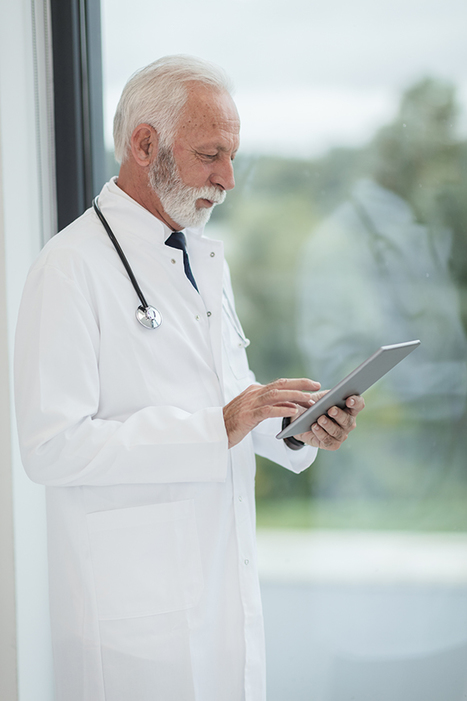


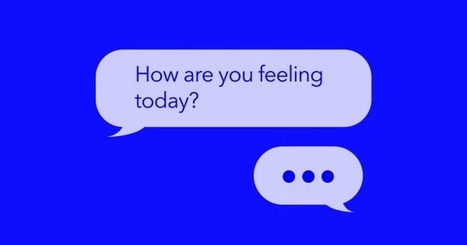
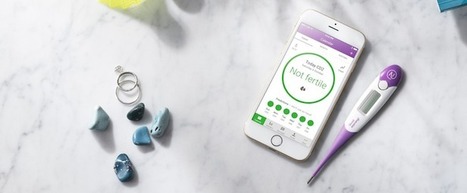

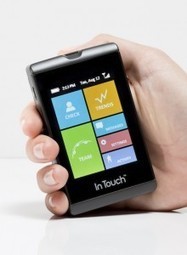


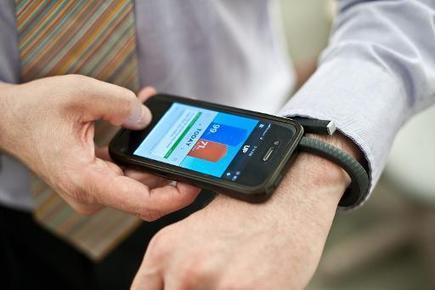

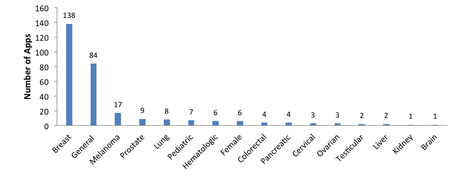
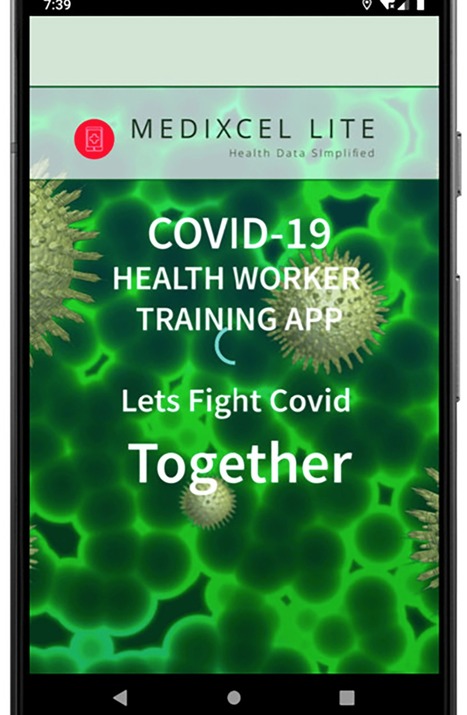
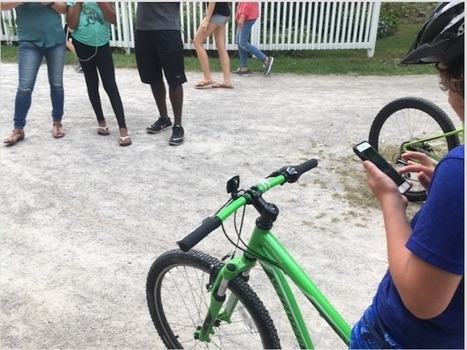

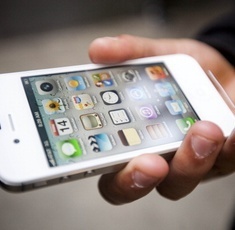
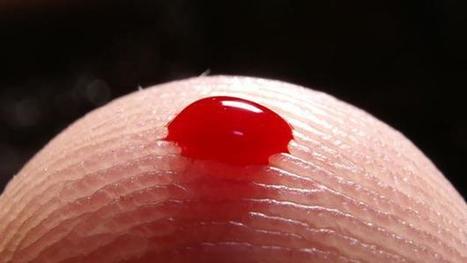
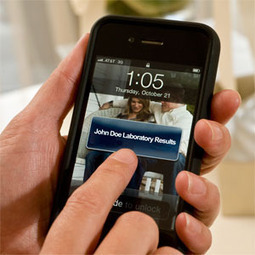

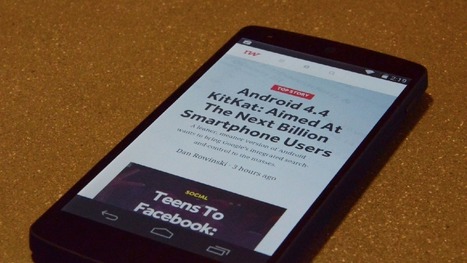






Identifying autism in toddlers is helpful to starting care for it early. This study's results demonstrate that with an app based approach coupled with an algorithmic approach, it is certainly possible to get possibly affected children in for detailed clinical evaluations earlier and fairly cheaply.
Thus, doctors will be able to install an app on their smartphone/tablet, one that is capable of analyzing the visual gaze of a toddler in order to determine if they may be on the autism spectrum.
And, in time, parents and family members will be able to download it onto their own smartphones/tablets carry out the screening themselves.